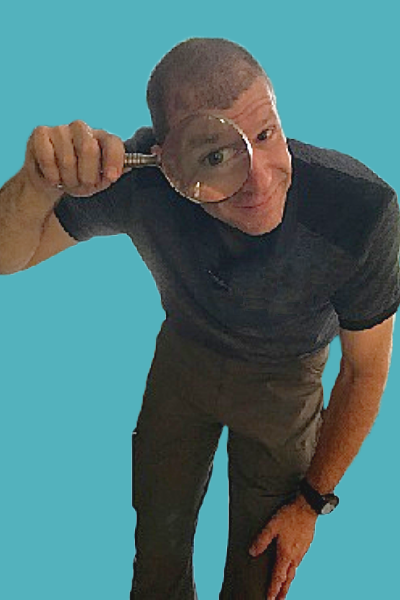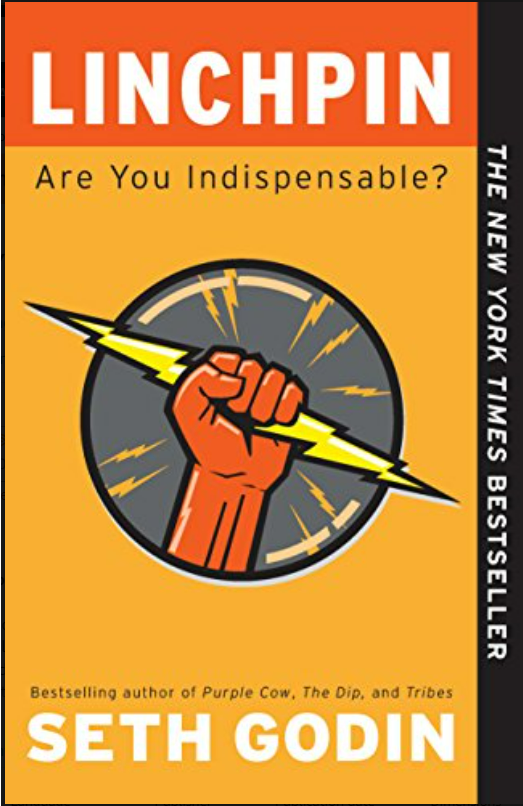Change. It’s all around us. Permeating everything in our modern world. Fate favors those who are able to keep up with the changing times.

Yet, change is uncomfortable. Wouldn’t it be so much easier if we just kept doing things the same way? We wouldn’t have to learn new things. We wouldn’t have to modify our behavior. We wouldn’t have to acquire new skills or figure out a new phone. If we can resist change, maybe we can maintain the status quo.
The reality is that this line of thinking eventually leads to only one place: the past.
Everything around us is changing. Phones are getting better. New ideas, new products, new codes; there are very few things that aren’t progressing.
So, why aren’t we?
One word: fear.
We try and reason the idea away. We’re very good at what we already do. Why would we start doing something new?
Everything comes down to fear. We’re afraid of doing something wrong. We don’t want to seem like we don’t know what we’re doing. We’re afraid of making a mistake. Never doing anything is certainly an effective strategy to make sure we never make a mistake.
Growth and comfort do not coexist.
Ginni Rometty
So, if we do decide to muster up the confidence needed to change, what’s the most effective way to do it? How do we go about it in a way that’s most likely to see things turn out in our favor?
The first thing we must remember is that change is difficult and will likely take more of our time and energy than we anticipated. If it seems like the youngsters are always the ones moving and taking chances, it’s probably because it is them making change. They’ve got more energy and fewer well-worn patterns to escape. This doesn’t mean you can’t teach an old dog new tricks, it’s just that the old dog needs to be ready to put in the effort to learn that new trick.
Next, we’ve got to think about how we’re going to go about it. Hitting the ground running may seem like a good idea, but slow and steady usually wins the race. Acting quickly is a good idea in some situations (especially when a nest full of angry wasps are coming out of that electric panel we just opened), but playing the long game usually provides the most benefit. Think about it, it’s quite likely that we’re going to be working as professional inspectors for decades into the future. What does it matter if it takes us a few years to master a new skill?
Change is inevitable. Growth is optional.
John C. Maxwell
We always hear stories of the lone warrior, single-handedly winning the battle. In reality, most progress and change occur because of the efforts of a team. This can pose a problem for us, as inspectors quite often find themselves working as a one-person operation. Thankfully, internet access affords us opportunities that previous inspectors never even dreamed of. (Incidentally, that access is the result of change!) We should take advantage of every opportunity we have to become part of something greater, whether that be a Facebook group, a mastermind, or a tribe of podcast listeners. Reading, listening to, and interacting with likeminded individuals is sure to expose us to new ideas and new ways of doing things, which is sure to make us a better inspector and businessperson.
We should be marketing with a purpose, working hard to develop awareness of, and trust in, our brand. Marketing is a long-term proposition. Making a big splash on social media is a wonderful feeling, but if potential clients rarely ever hear from us after that, how likely are they to search us out when they’re in need of the services we provide?

Once we dive into marketing, we’ve got to be cognizant of our intended audience. Trying to market to everyone is a rookie mistake, and one that even seasoned inspectors make. We can’t possibly reach everyone, and we really don’t need to. Stop and think about it: we really don’t need to catch anyone’s attention except people that are about to buy a house (and need a home inspection.) Why would we waste time and money marketing to anyone other than that target market? Concentrating our efforts on the smallest viable audience makes more sense. It’s much easier to shoot fish in a barrel than to shoot them in the ocean. (BTW, no fish were harmed in the writing of this post.)
Courage is the power to let go of the familiar.
Raymond Lindquist
It’s difficult to change. If we’re in a comfortable place, staying there is usually the easiest thing to do. To paraphrase Raymond Lindquist, it takes both courage and power to try to change. It’s not an easy thing to do; if it was, we would have already done it.
By following a thoughtfully designed plan, we can make things easier and increase our chances of success.
We’ve just got to be strong enough to dance with our fear.
It is not the strongest of the species that survive, nor the most intelligent, but the one most responsive to change.
Charles Darwin
This post is based on a post written by Seth Godin.
Follow him for amazing insight on marketing your business (and life in general)!
Would you like to get an email every Friday where we share the newest things we’ve discovered about home inspections? CLICK HERE to sign up.
Want to be an Influencer in Your Field? Share This Post!
Thanks, Joe


